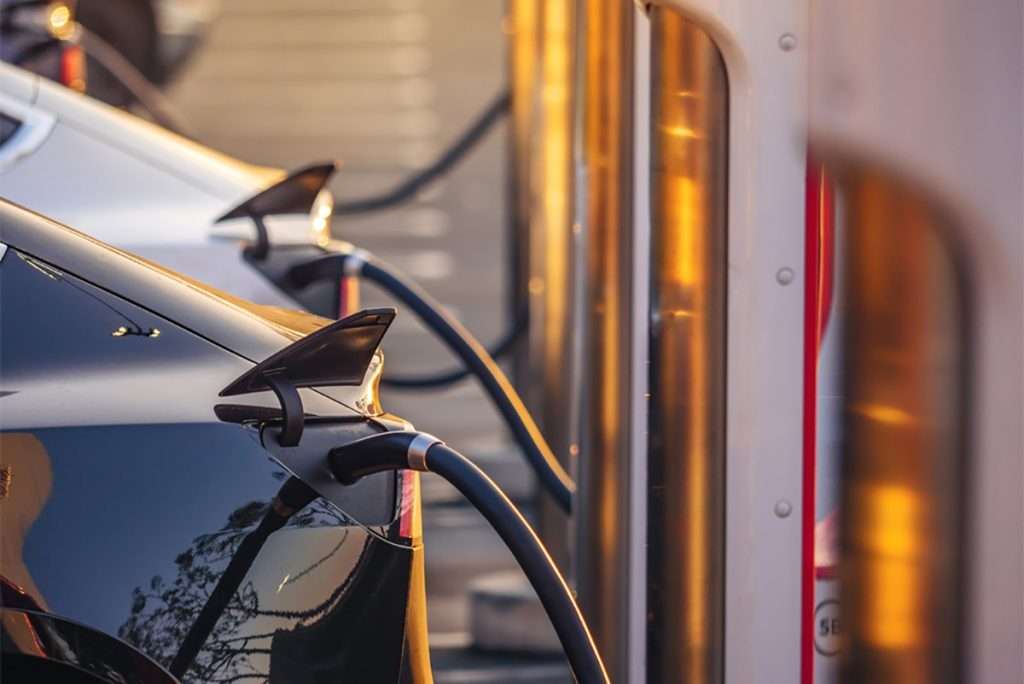The wider Franklin area is a big winner in today’s announcement from the Government’s Low Emission Vehicles Contestable Fund.
Counties Power has secured co-funding for two new initiatives from EECA to deliver the Government’s Low Emission Vehicles Contestable Fund, which aims to accelerate the uptake of electric and other low emission vehicles (EVs) in New Zealand.
Counties Power Chief Executive Judy Nicholl says the projects will demonstrate sustainable driving technology and how battery and solar energy solutions can manage peak demand electricity usage cost effectively, ultimately benefiting the company, local electricity consumers and electric vehicle drivers.
Counties Power Chief Executive Judy Nicholl said “As a company we’ve been at the forefront of sustainable energy usage in New Zealand, as early investors in electric vehicle fleets and charging systems, along with battery technology. We’re huge supporters of promoting electric vehicle usage within our region, while also investigating how we prepare for the future of electricity distribution using smarter energy technologies. These projects achieve both outcomes, and we’re grateful to EECA and the Fund for supporting us in our vision to deliver enhanced energy solutions to our community”.

-
Why can’t I top up my balance on the Openloop app?
Openloop has a pay-as-you go payment system which allows our customers to charge their EVs using a saved credit card on their account without needing a minimum balance on their app.
-
How do I save my credit card details on my Openloop account?
When you are in the mobile app, go to “Account” using the bottom nav bar, press “payment” and add your credit card to save it there.
-
What happens if I still have some money on my top up balance?
Existing balances will be utilised first before credit card charges are applied. For example, if a customer currently has $5 on their account balance and their charging session cost $15, then their credit card will be charged the $10 difference and their account balance will be reduced to $0.
Alternatively, if your top up balance more than covers the cost of your total charge, this will be used first and your credit card charged only in future transactions.
-
How do I get the Pay-as-you-go payment function on my Openloop app?
To access Pay-as-you-go for public chargers on the OpenLoop charging network, please update your mobile app by visiting the Apple App Store or Google Play Store.
-
Is there any change to the EV charging process for free or paid chargers?
No, there is no change to the existing steps that you take to start a charging session. The only changes are that you no longer have to top-up, and holds will no longer made on your credit card at the start of a charging session.
-
What is a “free” EV charging station?
On the mobile app, you may come across EV Chargers that have a tariff listed as “FREE” these EV Chargers are free to use.
-
Why does the app look different?
We have updated our logo and visual identity to better reflect what OpenLoop represents – a forward thinking and innovative technology company. The new look app also reflects customer feedback to improve the experience of using our mobile app.
Counties Power will demonstrate smart vehicle-to-grid technology integrated with solar generation and load balancing capability. This project, utilising a Nissan Leaf and charger powered by solar, aims to increase EV use and showcase consumer energy independence, energy savings and the optimisation of utilities peak demand management. The solar panels would allow the Nissan Leaf to charge directly using energy from the sun and the smart vehicle-to-grid capability will enable the energy to be released back into the building when required. This transforms electric vehicles into mobile power sources for homes and businesses. Together with a smart vehicle-to-grid technology, a 40kWh Nissan Leaf could power an average household for 13 hours.
As part of the second initiative, Counties Power will install two high-power EV chargers at Mercer on the Waikato Expressway together with a 240kW second-life EV battery system to optimise the use of electricity capacity and demand on the electricity network during peak power usage times. The battery system will use 18 repurposed Nissan leaf electric vehicle batteries which would otherwise have been discarded to store electricity taken from the network at lower demand periods to use for higher demand EV power charging.
The Fund will contribute up to $112,000 towards the Mercer High-Power Chargers initiative and $32,000 towards the Smart Vehicle-to-Grid initiative.
Notes: Counties Power announced in December 2020 it was working with Australian battery technology company Relectrify to deploy New Zealand’s largest battery system repurposing electric vehicle (EV) batteries to-date. The battery system combined Relectrify’s BMS+Inverter technology with batteries from nine Nissan Leaf electric vehicles to store over 120kWh of energy.
